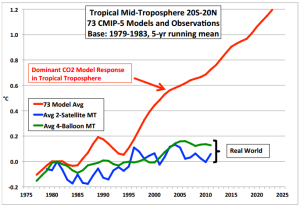With the recent passing of Irwin Schiff, father of Peter Schiff, I feel that it’s an appropriate time to discuss the message that Irwin spent most of his life trying to share with people. Irwin Schiff wrote several books and gave many speeches trying to prove, using the government’s own laws and documents, that the payment of income tax is not actually required by law. As a libertarian, I think this is a compelling topic that is worth examination. I’d like to outline some of the key arguments against the payment of income taxes, comment on a few other tax issues, and finally, summarize my position on what I think an acceptable tax regime could look like.
Let’s start with Irwin Schiff. In my opinion, his key and most powerful argument is based on the fact that our current income tax laws require individuals to “self-assess” their tax liability. Irwin argues, and I tend to agree, that being forced to file an income tax return violates an individual’s 5th Amendment protections against self incrimination. If your tax return can be used against you in a criminal proceeding for tax evasion, which it can, then you should not be forced to “testify” against yourself by filing an income tax return.
“…we may disclose your tax information to the Department of Justice to enforce the tax laws, both civil and criminal, and to cities, states, the District of Columbia, and U.S. commonwealths” – Disclosure, Privacy Act, and Paperwork Reduction Act Notice: Internal Revenue Service Form 1040
Another key claim made by Irwin Schiff is that individuals cannot be held liable to pay income tax because “income” is defined, not in the internal revenue code because that would be unconstitutional (“Congress cannot by any definition it may adopt conclude the matter, since it cannot by legislation alter the Constitution, from which alone it derives its power to legislate, and within whose limitations alone that power can be lawfully exercised” – Eistner vs. Mcomber), but through a series of supreme court cases. The most comprehensive of which is:
The Corporation Excise Tax Act of August 5, 1909 ( 36 Stat. 11, 112), was not an income tax law, but a definition of the word ‘income’ was so necessary in its administration that in an early case it was formulated as ‘A gain derived from capital, from labor, or from both combined.’ – Stratton’s Independence v. Howbert
There are two key things to take from this. The first being that the Corporation Excise Act of 1909 defined income and applied it to “every corporation, joint stock company or association, organized for profit and having a capital stock represented by shares”. That would suggest that income really only exists for corporations and not individuals. The second is that the definition of income indicates it’s the “gain derived from”, not just the receipt of compensation. That would suggest that individuals should be able to offset their “gross income” with all of their expenses to determine what their “gain” would be. That is the appropriate “taxable income”.
The last point I’ll highlight is the argument that the income tax is unconstitutional because it violates Article 1, Section 2, Clause 3 of the United States Constitution which states:
“Representatives and direct Taxes shall be apportioned among the several States which may be included within this Union, according to their respective Numbers, which shall be determined by adding to the whole Number of free Persons, including those bound to Service for a Term of Years, and excluding Indians not taxed, three fifths of all other Persons” – CONSTITUTION OF THE UNITED STATES, ARTICLE 1, SECTION 2, CLAUSE 3
This clause of the Constitution should make it clear that the amount of income taxes collected by the Federal government should be based on the population of the states, similar to the number of representatives granted to each state in the US House of Representatives, and not based on each individual’s income.
Mr. Schiff developed a long list of what I consider very valid legal arguments against individuals’ liability to pay income taxes. I would recommend everyone read his book The Federal Mafia: How the Federal Government Illegally Imposes and Unlawfully Collects Income Taxes. However, while I agree with his points of view and find his legal positions quite sound, I would still caution everyone from following his advice. The federal courts of the United States government have erroneously interpreted the powers of the government in favor of the government (shocking, I know) and imprisoned Mr. Schiff until his recent death.
Mr. Shiff spent his life arguing against the income tax specifically. With that in mind, I’d like to spend a bit of time on another tax that I find reprehensible – property taxes.
